"Innovating medicine with exceptional people, delivering exceptional care, in exceptional circumstances."
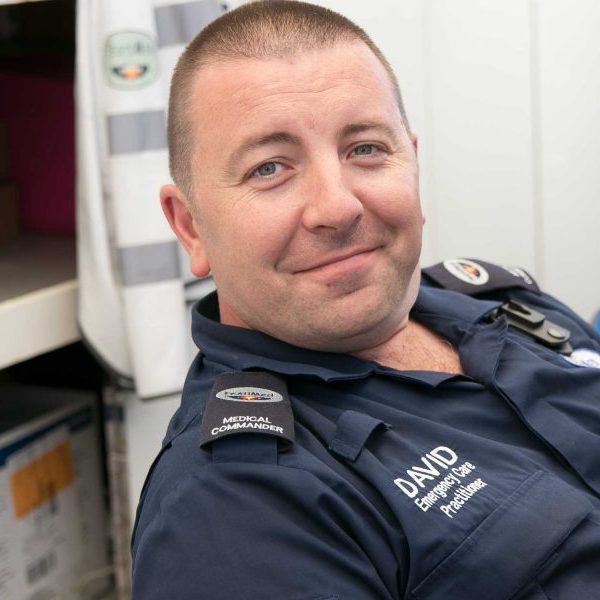
David Rock
CEO

Join our PTS Team
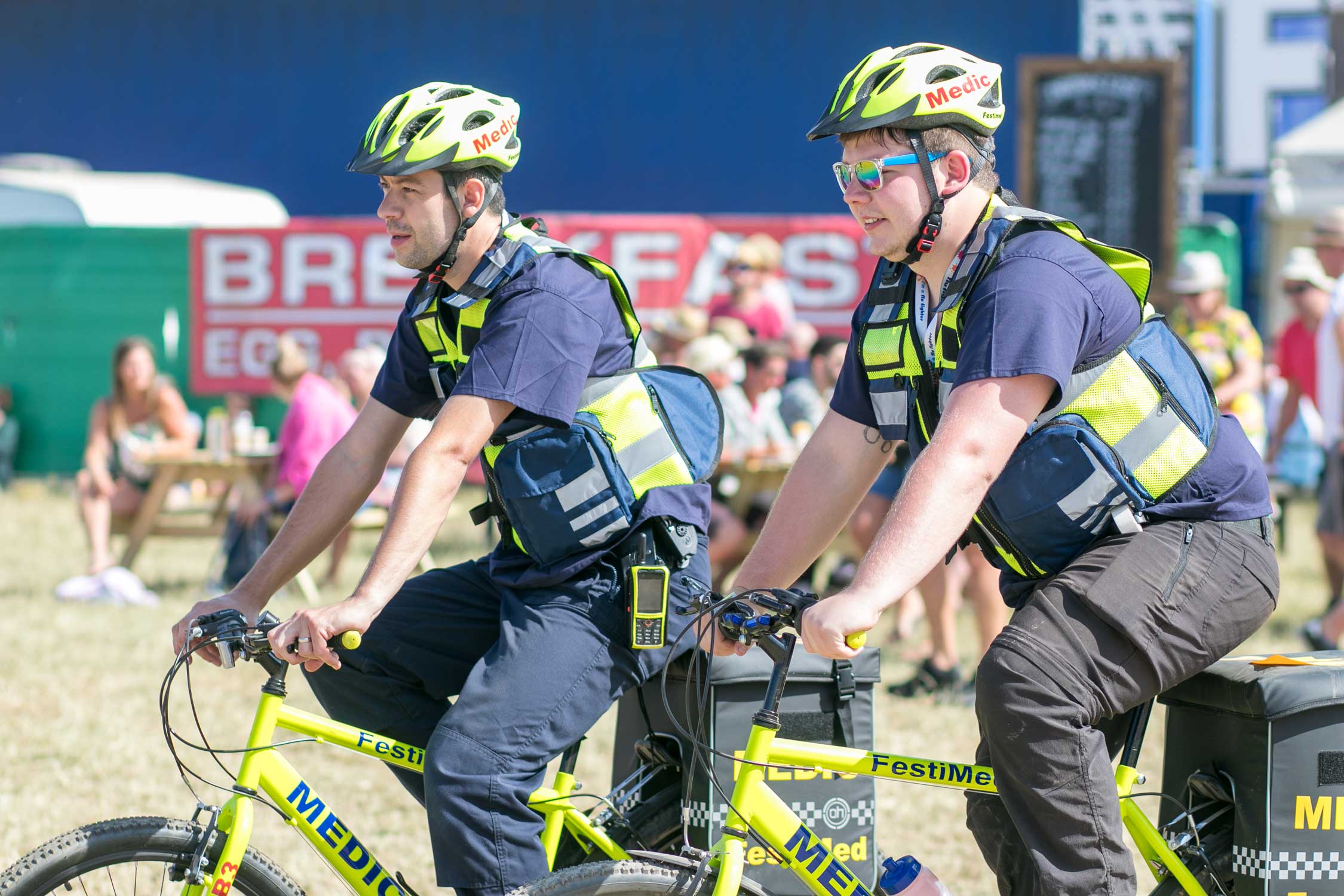
Join our Event Medical Team

If you would like to join our ever expanding Festimed Team then please sign up below and start your online application.
The chance to do the kind of work that adds up to something meaningful. The opportunity to challenge yourself and learn new skills.
The prospect of being surrounded by smart, ambitious
motivated people, day-in and day-out. That’s the kind of work you can expect to do at Festimed.
Sound appealing?
Come join us.
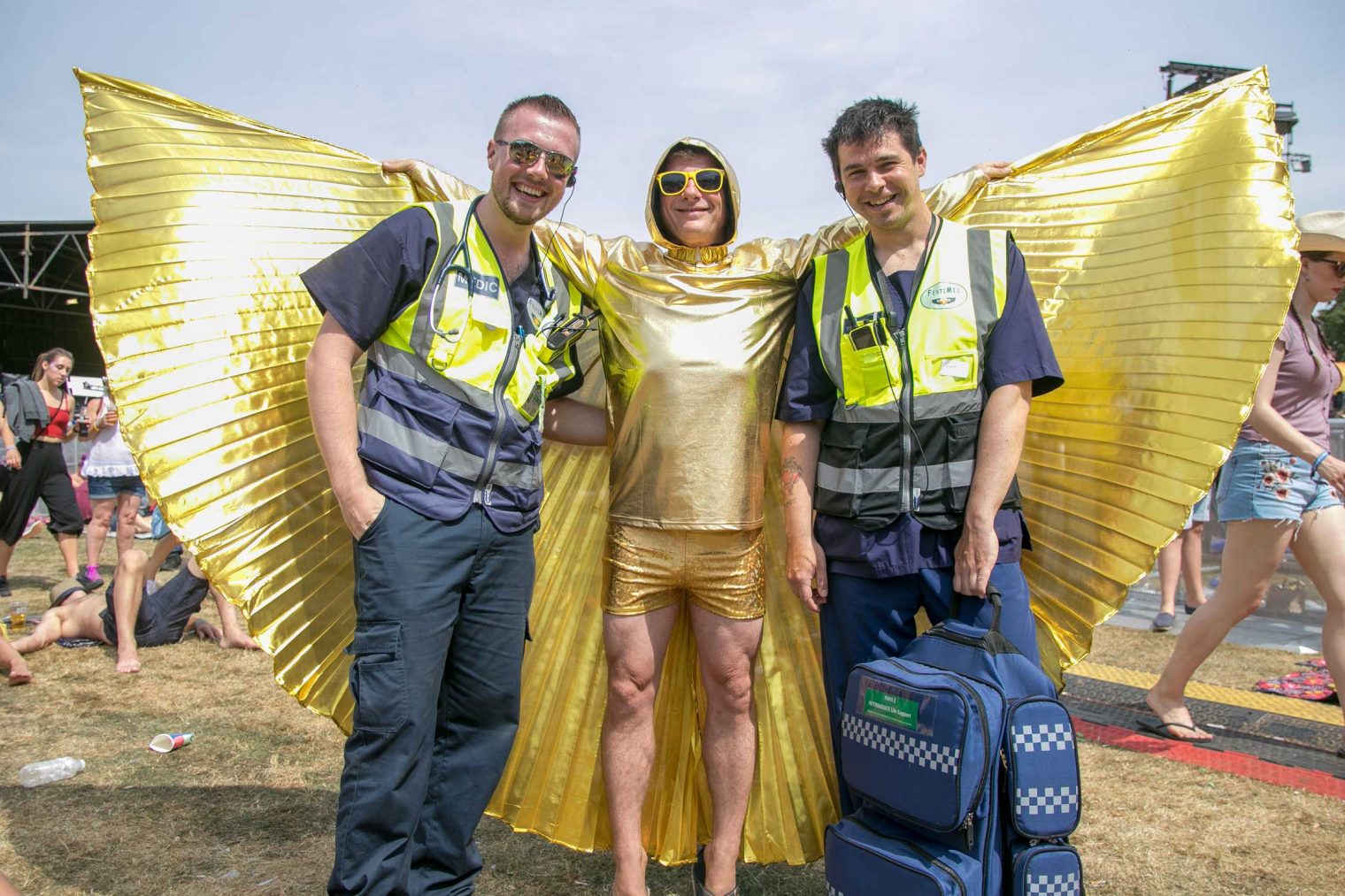
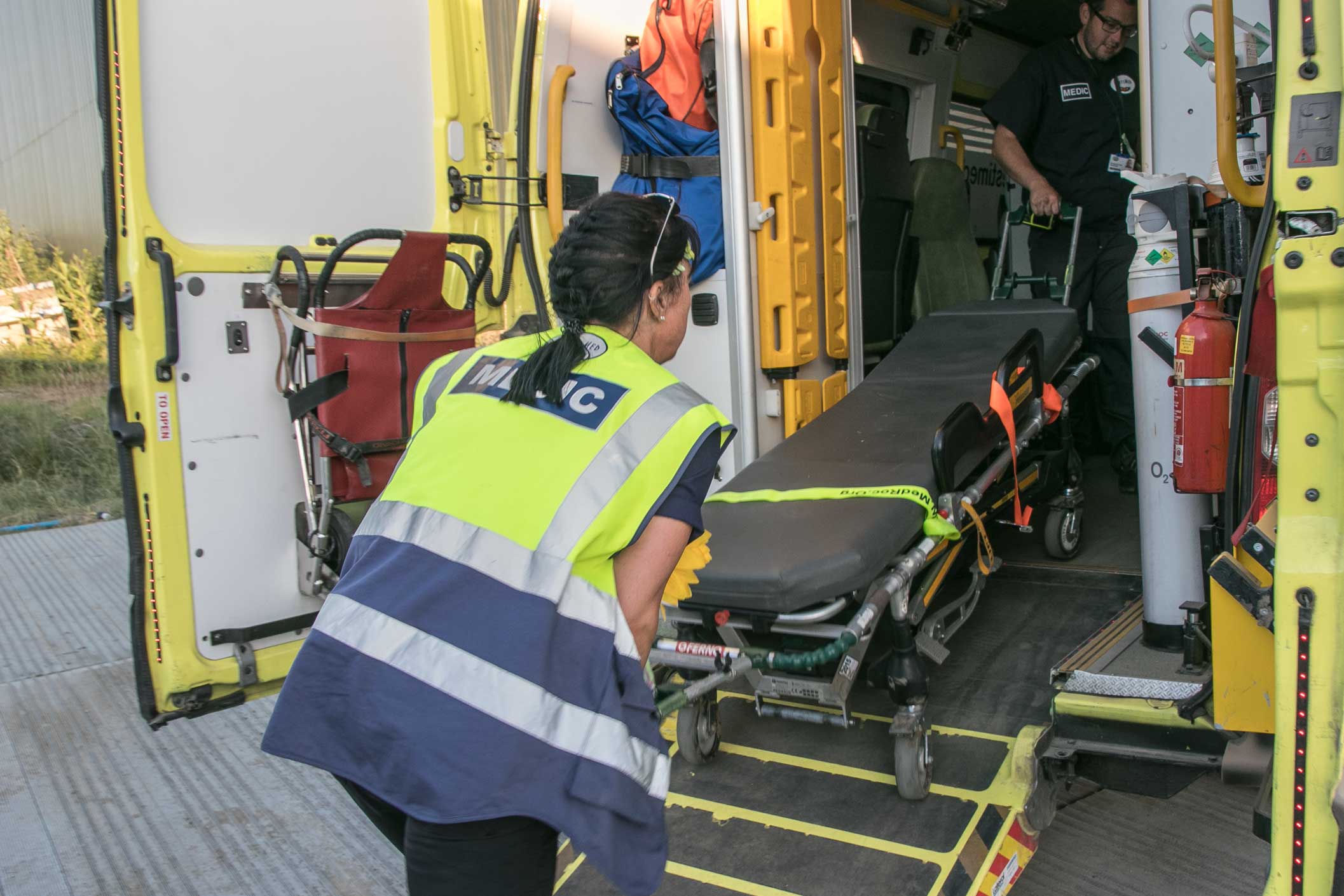
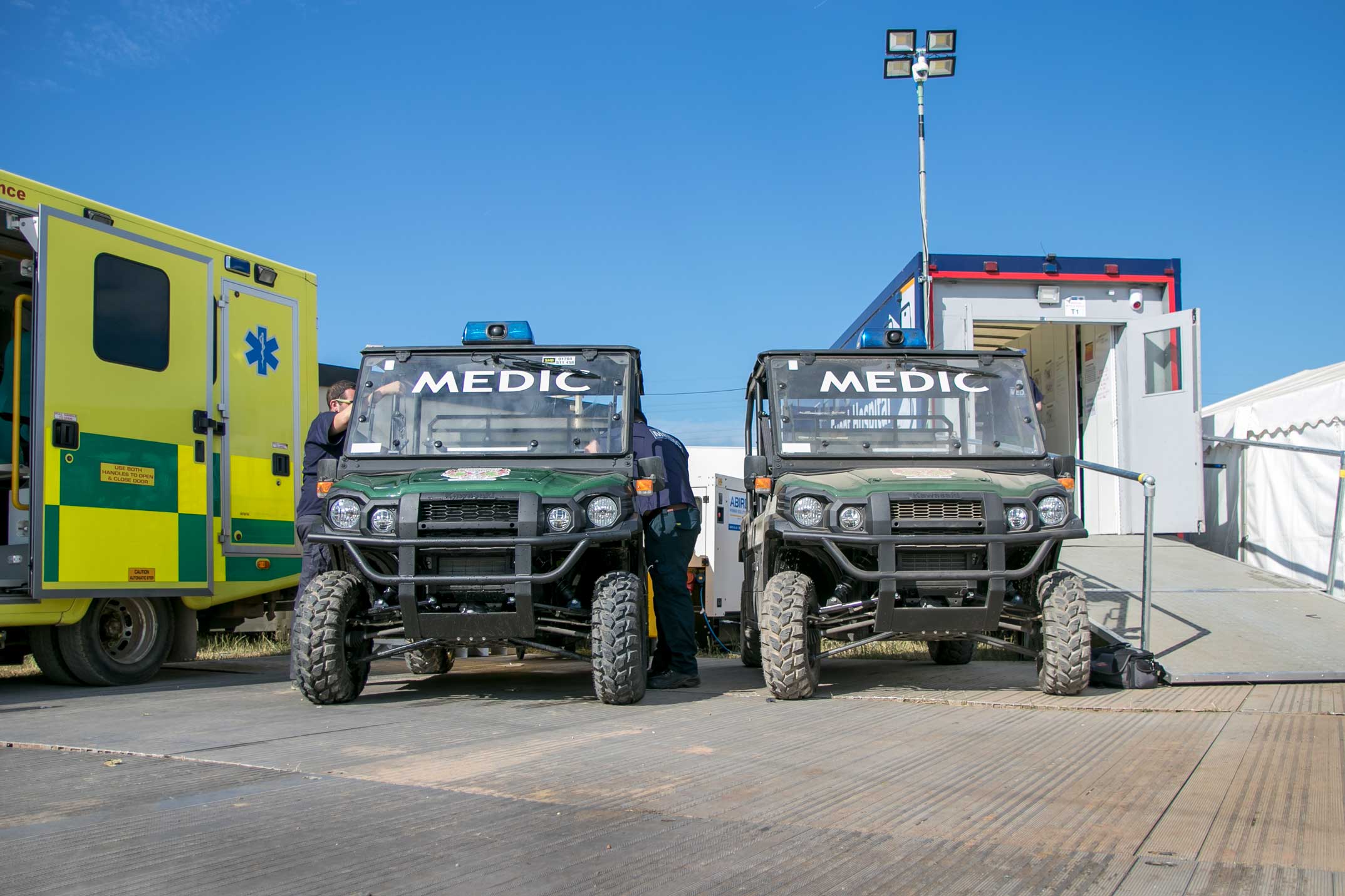
Festimed provides medical provision to numerous large and small events in both the UK and Ireland. The provision can range from small medical centres to full event hospitals with auxiliary medical posts. We try to have little to no impact on the statutory medical services.
The application form is split in sections and you can come back these at any point prior to submission of each section.
We suggest that prior to commencing your application form you have the following documents to hand with a copy ready to upload. Depending on your qualification and personal circumstances you may need all or some of the following.
You will not be invited to interview until all sections are completed as applicable. As soon as we have everything someone will contact you by email to organise a face to face or skype interview.
We look forward to welcoming you to the Festimed Family soon.
Whilst we appreciate that a Doctor can work in a wide variety of fields, to work within an event environment recent or current experience of working in an Emergency Department and / or MIU/ICU is a must. All Doctors both in UK and Ireland would have attended university and in addition many will have specialised in particular areas such as Emergency Medicine, Anaesthetics, etc. and are all registered with the applicable registered body (General Medical Council or Irish Medical Council) and some are dual registered. Within the role of Doctor we understand that there are various levels of experience and we reflect this in the position attained with us from Post qualified Doctors to a Registrar and up to Consultant.
An ECP is a medic that is already qualified normally as a Paramedic or less often as a Physiotherapist or Nurse and has returned to university to undertake additional advanced modules to either degree or diploma level. These modules generally cover minor injuries, minor illnesses, clinical decision making, psychiatry, paediatrics, nature of physical assessment, etc. and they can work autonomously within Emergency Departments, Minor Emergency Departments and GP clinics. They would have blue light driving as they are traditionally more of a pre hospital role. Currently all ECPs are signed off under our Patient Group Directives, however as and when Prescribing is undertaken this will be replaced on an individual basis. If an ECP is a Nurse then they would be a prescriber. All ECPs with Festimed are known as a Practitioner and would be registered with the Health Care Professionals Council (HCPC) or if a Nurse then NMC, in addition they must be currently working within this role.
An AP is a highly trained medic accredited through the Pre Hospital Emergency Care Council (PHECC) and traditionally works in an ambulance environment . An AP can provide advanced life support in emergency situations and have a minimum of three years experience as a Paramedic. The equivalent UK qualification would be Paramedic.
A Paramedic is also a highly trained medic accredited through PHECC and traditionally works in an ambulance environment. A Paramedic can provide intermediate life support in emergency situations. They train for over six months through theory, practical and supervised clinical practice placements prior to a one year internship before qualification. The equivalent UK qualification would be EMT.
A Paramedic is a highly trained medic accredited through the Health Care Professional Council (HCPC) and would traditionally work in an ambulance environment. Many years ago a Paramedic would have started as an EMT within the statutory ambulance service and undergone their Paramedic training in-house. More recently to become a Paramedic training is as a foundation degree, diploma or degree in Paramedic Science or Paramedic Practice. A Paramedic can provide advanced life support in emergency situations. The equivalent Irish qualification would be an Advanced Paramedic.
An EMT is again a highly trained medic also accredited through the PHECC and as with an AP and Paramedic traditionally would work within an ambulance environment although this is less common in recent years. An EMT can provide basic life support in emergency situations and the training consists of five weeks followed by clinical supervision prior to qualifying. The equivalent UK qualification would be ECA Level 2.
An EMT is again a highly trained medic but within the UK this qualification is not accredited through a registered body like other qualifications such as Paramedic, Doctor or Nurse. An EMT would traditionally would work within an ambulance environment and can provide basic life support in emergency situations.
To work as an EMT with Festimed we accept the following qualifications being:
IHCD is the nationally recognised EMT qualification of old by the statutory ambulance services, however more recently this has changed. After much research and discussions the only other qualifications we accept are as above as these are more enhanced qualifications than others with more assignments, total qualification time, learning hours and the course contents are more applicable to the role we require.
Whilst we understand that there are several other courses resulting in the qualification as EMT, we only accept these four.
An ECA is a newer qualification within the UK being introduced in 2006 and each statutory ambulance service has they own set of requirements and training, however the position is not there to make complex clinical decisions. Within Festimed we have two levels of ECA as below. Level 1 Currently employed by a statutory ambulance service as an ECA, can provide evidence of this along with scope of practice and also has certified blue light training. Level 2 Has certification higher than that of an Emergency Responder but it not IHCD, Pearson’s Level 4 or QA FREC Level 5 so therefore is not recognised as an EMT within Festimed. Also has certified blue light training, so a QA FREC Level 4 would be suitable. OR Is a Student EMT / Paramedic with a statutory ambulance service, can provide evidence of this along with scope of practice and also has certified blue light training. OR Is a PHECC registered EMT within Ireland.
An Emergency First Responder (EFR) is a medic accredited through the PHECC in Ireland and would not normally work within the ambulance environment. The course is five days resulting in an EFR being able to provide basic life support in emergency situations but not to the same level as an EMT. A Community First Responder (CFR) has less training than a EFR and Festimed would not have many roles for this position.
Within the UK we would class an Emergency Responder as someone that has undertaken either AFA Level 3 FPOS or Qualsafe Level 3 FREC through a recognised body which would include medical gasses and defib certs. So, in summary this is someone that has undertaken more than a basic first aid course and has also undertaken clinical hours, this position used to be known as Advanced First Aider within Festimed. We call our Irish EFRs and CFRs Emergency Responders if they work within the UK environment.
A NP is a medic that is already qualified as a Nurse and has undertaken additional modules to enhance their role but is often not as many modules as an ECP. Some NPs would have undertaken a prescriber module however this one module in itself does not class someone as being a NP for Festimed, we generally look at this particular qualification on a case by case basis to ensure that the person would fit into this role, in addition they must be currently working within this role.
A Nurse is accredited through either the Nursing Midwifery Council of England or Nursing Midwifery Board of Ireland and their background can vary. To be working at an event we would also require very recent or current experience within either ED or MIU / ICU unless other circumstances dictate. A Nurse can generally provide intermediate life support in emergency situations, however not all Nurses would have this level of training as it is dependent upon their main employer and role. Their training is 3-4 years at degree level consisting of theory, practical and internships. A Nurse registered within the UK would have a much wider scope of autonomous practice.
This position supports and works under the guidance of the more senior staff within the hospital / medical posts and is a regular qualification within the UK. The training and requirements for this position can vary vastly and it is a qualification that is not accredited to any registered body. Many people with this qualification will gain a Care Certificate and this may include CACHE Level 2 or 3 in either Healthcare Support Services and Clinical Healthcare Support and is often done through an apprenticeship. Within this position for Festimed we would require certification through a recognised body such as the aforementioned (more than a 3 day first aid course!) and this should include medical gasses, intermediate airway management, AED and observation training as a minimum – so similar to an Emergency Responder but based within a hospital setting. Ideally being currently employed as a HCA for a hospital or statutory trust is preferable along with evidence of proof of scope of practice.
This position is based within the Control centre of an event and often with other relevant organisations. An EMD is someone that has been specially trained and can both take medical calls and also dispatch them to the crews. Within the statutory ambulance services it would normally be a call handler that takes the 999 / 112 call who then inputs the information onto the applicable computer software system and then a dispatcher who makes the decision of which crew will attend that call. Depending on the event size we also run a similar system within Festimed. If a request for medical assistance is made in through the applicable organisation they complete the simple request sheet meaning that the EMD can determine the urgency of the matter and what most appropriate resource should be dispatched. This is then inputted onto our dedicated control software system and the call sent to the applicable resource. This position is extremely important and is a mixture of common sense, organisation, quick thinking and ability to make good decisions.
Our clerical staff are important to us as they are often the first and last person that someone may see when they attend our Event Hospital. These positions are our receptionists who will take the general and personal details to input into our bespoke patient software called Pebbles which in turn informs the clinical staff that there are patients to be seen. Previous clerical experience is preferential along with good customer service and organisations skills.
We recently introduced dedicated Pharmacy staff to our Festimed team as they are experts in medicines and their uses. They have the knowledge of medicines and the effect they have on the human body. In addition to their knowledge of medicines they can also advise on medication, dosages, give applicable advice plus give advice on sexual health, smoking cessation, etc. In the UK a Pharmacist must be registered with General Pharmaceutical Council (GPhC) and will have qualified to Masters level in Pharmacy which is four years. In Ireland a Pharmacist must be registered with The Pharmaceutical Society of Ireland (PSI) and again is qualified to degree / masters level depending on when they qualified. A Pharmacy Technician in the UK assists a Pharmacist and can prepare and dispense medicines. They also have to be registered with the GPhC and have to work within a pharmacy to be eligible to attain the qualification to either BTEC National Diploma, NVQ Level 3 or a National Certificate. To confuse matters, a Pharmaceutical Assistant is what this position is known as within Ireland and must be registered with PSI and this is a closed register. A Pharmacy Assistant is not registered with GPhC but would work within a pharmacy environment to attain this title and may have a relevant NVQ / BTEC Level 2 qualification within the UK. This position within Ireland is known as a Pharmacy Sales Assistant.
These positions are often found at sporting events rather than festivals. In both the UK and Ireland a Physiotherapist has qualified to degree level and within the UK is registered with the HCPC and in Ireland with the Irish Society of Chartered Physiotherapists (ISCP). A Physio has a range of interventions, services and advice that is aimed at restoring, maintaining and improving people’s function and movement using a flexible and holistic approach. A Sports Therapist is similar to a Physio but is more defined to an area of musculoskeletal injuries related to physical activities and does not have to be part of a registered body within Ireland or the UK.
This position would only be used as large sporting events as the position is specifically for feet and lower limbs. Within the UK this is a registered profession and they must be part of the HCPC, within Ireland this is not currently recognised profession that must be registered, however it is envisaged that over the coming years there will be a requirement for this.
© Festimed.org 2023 All rights reserved